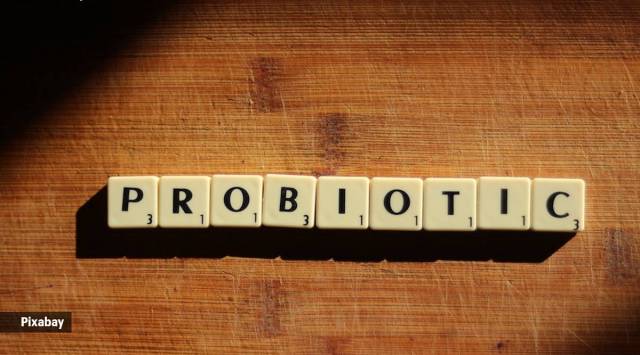📣 For more lifestyle news, click here to join our WhatsApp Channel and also follow us on Instagram
Why you need probiotic and prebiotic foods in your diet (and things to keep in mind before consuming them)
"Probiotics work best when they have not undergone any artificial changes in their composition, and prebiotics work best when they are active and live," said Dr Smriti Jhunjhunwala, BHMS nutritionist and dietitian.

Did you know that only 45 percent of your body is made up of human cells and the rest is bacteria, most of which reside in your large intestine and is responsible for performing a variety of important functions? Elucidating the same, Krish Ashok, author of Masala Lab, in an Instagram post wrote, “There is increasing evidence that having a healthy population of good bacteria in your gut is great for long-term health. So foods that have directly living good bacteria are called probiotics. Sources of good bacteria include yoghurt and all fermented foods”.
He, however, added that cooking food above 65 degrees Celsius kills all bacteria. “So, idli, Punjabi dal, and store-bought pasteurised yoghurt are not probiotics; and even if you eat fermented food, your stomach acid will kill almost all of them. Only a few of the acid-resistant strains tend to survive”.
So, to make sure you get probiotics, Ashok advises eating uncooked fermented food.
View this post on Instagram
What are prebiotic and probiotic foods?
Not all bacteria are bad for our health. In very simple language, probiotics are the healthy bacteria present in the human intestine and prebiotics are the foods for those healthy bacteria.
“Our body needs good bacteria to maintain a healthy mind and body. Probiotics are the ‘good’ bacteria that reside in our intestines and benefit us in several ways. They are usually acquired through fermented foods and supplements. Prebiotics are specialised types of fiber that probiotics need to survive and thrive in the intestines (they are food for probiotics). Prebiotics can be found in foods like oats, beans, leafy vegetables, grains and legumes,” explained Dr Shobha Subramanian Itolikar, Consultant-Internal Medicine, Fortis Hospital Mulund.
 Curd is a good source of probiotic. (Pic source: Pixabay)
Curd is a good source of probiotic. (Pic source: Pixabay)
Benefits of pre-probiotics (synbiotics)
Dr Smriti Jhunjhunwala, BHMS nutritionist and dietitian shared some benefits of pre-probiotics:
1. They help maintain the body’s immunity
2. They control inflammation (swelling) or infection
3. They help breakdown the absorbed medications
4. They help synthesise certain vitamins (vitamin b12)
5. They are needed to prevent and protect you from the bad or unwanted bacteria that you might have ingested with food.
How to include them in our diet
Dr Subramanian said consuming the below food items will help you get them:
1. Regular use of dairy products, especially curd, yogurt, buttermilk etc
2. Fermented vegetables like kimchi
3. Fermented soy products like miso, tempeh
4. Sourdough bread
Things to keep in mind
Dr Jhunjhunwala explained certain things to keep in mind while having these foods. They are:
1. Prebiotics, that is the fibre rich food, is not easily tolerated by all and therefore should not exceed the recommended doses. (20-30 gms/day for a normal healthy adult).
2. Excess fibre can also cause bloating and uneasiness for individuals with a weak and sensitive GI tract, so they must limit their fibre intake.
3. Probiotics, the live and active bacterial cultures, die when subjected to extreme temperatures of heat and cold, which means fermenting and growing the bacteria and later heating would result in the death of those friendly bacteria and will be of no use when ingested.
4. Pasteurising and refrigerating for long hours also kills the probiotic component , which we then enjoy later only to satisfy our taste buds and console our minds.
5. If you actually want to benefit from probiotic foods, you must have “raw fermented foods” like fermented pickles, kimchi, cottage cheese (before refrigerating), curd, buttermilk etc.
📣 For more lifestyle news, follow us on Instagram | Twitter | Facebook and don’t miss out on the latest updates!
📣 For more lifestyle news, click here to join our WhatsApp Channel and also follow us on Instagram


- 01
- 02
- 03
- 04
- 05
























